Judgment of Paris (wine)
The Paris Wine Tasting of 1976, also known as the Judgment of Paris, was a wine competition organized in Paris on 24 May 1976 by Steven Spurrier, a British wine merchant and his colleague, Patricia Gallagher, in which French judges carried out two blind tasting comparisons: one of top-quality Chardonnays and another of red wines (Bordeaux wines from France and Cabernet Sauvignon wines from Napa, California).[1][2] A Napa wine rated best in each category, which caused surprise as France was generally regarded as being the foremost producer of the world's best wines. Spurrier sold only French wine and believed that the California wines would not win.[3]
The event's informal name "Judgment of Paris" is an allusion to the ancient Greek myth.
The wines
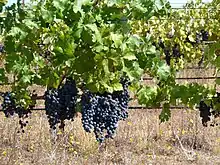
Red wines
| California Cabernet Sauvignon | Vintage | Bordeaux | Vintage |
|---|---|---|---|
| Stag's Leap Wine Cellars | 1973 | Château Mouton-Rothschild | 1970 |
| Ridge Vineyards Monte Bello | 1971 | Château Montrose | 1970 |
| Heitz Wine Cellars Martha's Vineyard | 1970 | Château Haut-Brion | 1970 |
| Clos Du Val Winery | 1972 | Château Leoville Las Cases | 1971 |
| Mayacamas Vineyards | 1971 | ||
| Freemark Abbey Winery | 1969 |
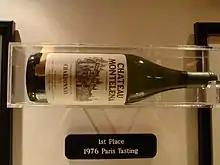
White wines
| California Chardonnay | Vintage | Burgundies | Vintage |
|---|---|---|---|
| Chateau Montelena | 1973 | Meursault Charmes Roulot | 1973 |
| Chalone Vineyard | 1974 | Beaune Clos des Mouches Joseph Drouhin | 1973 |
| Spring Mountain Vineyard | 1973 | Batard-Montrachet Ramonet-Prudhon | 1973 |
| Freemark Abbey Winery | 1972 | Puligny-Montrachet Les Pucelles Domaine Leflaive | 1972 |
| Veedercrest Vineyards | 1972 | ||
| David Bruce Winery | 1973 |
The judges
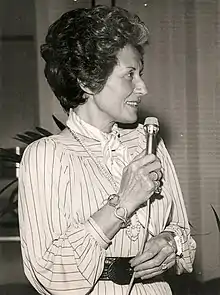
The eleven judges were (in alphabetical order):[4]
- Pierre Brejoux (French) of the Appellation d'Origine Controlee Board
- Claude Dubois-Millot (French) (Substitute to Christian Millau)
- Michel Dovaz (French) of the Wine Institute of France
- Patricia Gallagher (American) of l'Academie du Vin.[2]
- Odette Kahn (French) Editor of La Revue du vin de France
- Raymond Oliver (French) of the restaurant Le Grand Véfour
- Steven Spurrier (British) Founder of L'Academie du Vin
- Pierre Tari (French) of Chateau Giscours
- Christian Vannequé (French) the sommelier of Tour D'Argent
- Aubert de Villaine (French) of the Domaine de la Romanée-Conti
- Jean-Claude Vrinat (French) of the Restaurant Taillevent
Method
Blind tasting was performed and the judges were asked to grade each wine out of 20 points. No specific grading framework was given, leaving the judges free to grade according to their own criteria.
Rankings of the wines preferred by individual judges were based on the grades they individually attributed.
An overall ranking of the wines preferred by the jury was also established in averaging the sum of each judge's individual grades (arithmetic mean). However, grades of Patricia Gallagher and Steven Spurrier were not taken into account, thus counting only grades of French judges.[5]
The results
White wines
California Chardonnays vs. Burgundy Chardonnays[4]
Official jury results:
| Rank | Grade | Wine | Vintage | Origin |
|---|---|---|---|---|
| 1. | 132 | Chateau Montelena | 1973 | |
| 2. | 126.5 | Meursault Charmes Roulot | 1973 | |
| 3. | 121 | Chalone Vineyard | 1974 | |
| 4. | 104 | Spring Mountain Vineyard | 1973 | |
| 5. | 101 | Beaune Clos des Mouches Joseph Drouhin | 1973 | |
| 6. | 100 | Freemark Abbey Winery | 1972 | |
| 7. | 94 | Batard-Montrachet Ramonet-Prudhon | 1973 | |
| 8. | 89 | Puligny-Montrachet Les Pucelles Domaine Leflaive | 1972 | |
| 9. | 88 | Veedercrest Vineyards | 1972 | |
| 10. | 42 | David Bruce Winery | 1973 |
Red wines
California Cabernet Sauvignon vs. Bordeaux[4]
Official jury results:
| Rank | Grade | Wine | Vintage | Origin |
|---|---|---|---|---|
| 1. | 127.5 | Stag's Leap Wine Cellars | 1973 | |
| 2. | 126 | Château Mouton-Rothschild | 1970 | |
| 3. | 125.5 | Château Haut-Brion | 1970 | |
| 4. | 122 | Château Montrose | 1970 | |
| 5. | 105.5 | Ridge Vineyards Monte Bello | 1971 | |
| 6. | 97 | Château Leoville Las Cases | 1971 | |
| 7. | 89.5 | Mayacamas Vineyards | 1971 | |
| 8. | 87.5 | Clos Du Val Winery | 1972 | |
| 9. | 84.5 | Heitz Wine Cellars Martha's Vineyard | 1970 | |
| 10. | 78 | Freemark Abbey Winery | 1969 |
Average Original grades: out of 20 points.
| Rank | Grade | Wine | Vintage | Origin |
|---|---|---|---|---|
| 1. | 14.14 | Stag's Leap Wine Cellars | 1973 | |
| 2. | 14.09 | Château Mouton-Rothschild | 1970 | |
| 3. | 13.64 | Château Montrose | 1970 | |
| 4. | 13.23 | Château Haut-Brion | 1970 | |
| 5. | 12.14 | Ridge Vineyards Monte Bello | 1971 | |
| 6. | 11.18 | Château Leoville Las Cases | 1971 | |
| 7. | 10.36 | Heitz Wine Cellars Martha's Vineyard | 1970 | |
| 8. | 10.14 | Clos Du Val Winery | 1972 | |
| 9. | 9.95 | Mayacamas Vineyards | 1971 | |
| 10. | 9.45 | Freemark Abbey Winery | 1969 |
Breakdown by judge
The original grades (out of 20 points) are shown, in alphabetical order by judge.[4]

Pierre Brejoux Original grades: out of 20 points.
| Rank | Grade | Wine | Vintage | Origin |
|---|---|---|---|---|
| 1. | 17 | Château Haut-Brion | 1970 | |
| 2. | 16 | Château Mouton-Rothschild | 1970 | |
| 3. | 14 | Stag's Leap Wine Cellars | 1973 | |
| 3. | 14 | Clos Du Val Winery | 1972 | |
| 5. | 13 | Ridge Vineyards Monte Bello | 1971 | |
| 6. | 12 | Château Montrose | 1970 | |
| 6. | 12 | Heitz Wine Cellars Martha's Vineyard | 1970 | |
| 8. | 10 | Château Leoville Las Cases | 1971 | |
| 9. | 7 | Mayacamas Vineyards | 1971 | |
| 10. | 5 | Freemark Abbey Winery | 1969 |

Claude Dubois-Millot Original grades: out of 20 points.
| Rank | Grade | Wine | Vintage | Origin |
|---|---|---|---|---|
| 1. | 17 | Château Montrose | 1970 | |
| 2. | 16 | Château Mouton-Rothschild | 1970 | |
| 2. | 16 | Stag's Leap Wine Cellars | 1973 | |
| 4. | 13.5 | Château Haut-Brion | 1970 | |
| 5. | 11 | Château Leoville Las Cases | 1971 | |
| 6. | 9.5 | Mayacamas Vineyards | 1971 | |
| 7. | 9 | Freemark Abbey Winery | 1969 | |
| 7. | 9 | Clos Du Val Winery | 1972 | |
| 9. | 8 | Heitz Wine Cellars Martha's Vineyard | 1970 | |
| 10. | 7 | Ridge Vineyards Monte Bello | 1971 |
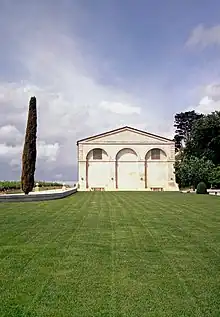
Michel Dovaz Original grades: out of 20 points.
| Rank | Grade | Wine | Vintage | Origin |
|---|---|---|---|---|
| 1. | 15 | Château Mouton-Rothschild | 1970 | |
| 1. | 15 | Freemark Abbey Winery | 1969 | |
| 3. | 12 | Château Haut-Brion | 1970 | |
| 3. | 12 | Ridge Vineyards Monte Bello | 1971 | |
| 5. | 11 | Château Montrose | 1970 | |
| 5. | 11 | Heitz Wine Cellars Martha's Vineyard | 1970 | |
| 5. | 11 | Clos Du Val Winery | 1972 | |
| 8. | 10 | Château Leoville Las Cases | 1971 | |
| 8. | 10 | Stag's Leap Wine Cellars | 1973 | |
| 10. | 8 | Mayacamas Vineyards | 1971 |
Patricia Gallagher Original grades: out of 20 points.
| Rank | Grade | Wine | Vintage | Origin |
|---|---|---|---|---|
| 1. | 17 | Heitz Wine Cellars Martha's Vineyard | 1970 | |
| 2. | 16 | Ridge Vineyards Monte Bello | 1971 | |
| 3. | 15 | Château Mouton-Rothschild | 1970 | |
| 3. | 15 | Freemark Abbey Winery | 1969 | |
| 5. | 14 | Château Leoville Las Cases | 1971 | |
| 5. | 14 | Château Montrose | 1970 | |
| 5. | 14 | Stag's Leap Wine Cellars | 1973 | |
| 8. | 13 | Clos Du Val Winery | 1972 | |
| 9. | 12 | Château Haut-Brion | 1970 | |
| 10. | 9 | Mayacamas Vineyards | 1971 |
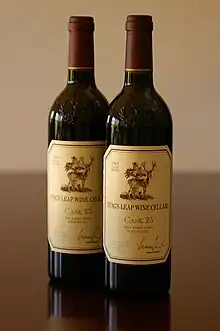
Odette Kahn Original grades: out of 20 points.
| Rank | Grade | Wine | Vintage | Origin |
|---|---|---|---|---|
| 1. | 15 | Stag's Leap Wine Cellars | 1973 | |
| 2. | 13 | Mayacamas Vineyards | 1971 | |
| 3. | 12 | Château Mouton-Rothschild | 1970 | |
| 3. | 12 | Château Montrose | 1970 | |
| 3. | 12 | Château Leoville Las Cases | 1971 | |
| 3. | 12 | Château Haut-Brion | 1970 | |
| 7. | 7 | Ridge Vineyards Monte Bello | 1971 | |
| 8. | 5 | Freemark Abbey Winery | 1969 | |
| 9. | 2 | Heitz Wine Cellars Martha's Vineyard | 1970 | |
| 9. | 2 | Clos Du Val Winery | 1972 |
Raymond Oliver Original grades: out of 20 points.
| Rank | Grade | Wine | Vintage | Origin |
|---|---|---|---|---|
| 1. | 14 | Château Montrose | 1970 | |
| 1. | 14 | Mayacamas Vineyards | 1971 | |
| 1. | 14 | Stag's Leap Wine Cellars | 1973 | |
| 4. | 12 | Château Mouton-Rothschild | 1970 | |
| 4. | 12 | Château Leoville Las Cases | 1971 | |
| 4. | 12 | Ridge Vineyards Monte Bello | 1971 | |
| 7. | 10 | Château Haut-Brion | 1970 | |
| 7. | 10 | Clos Du Val Winery | 1972 | |
| 7. | 10 | Heitz Wine Cellars Martha's Vineyard | 1970 | |
| 10. | 8 | Freemark Abbey Winery | 1969 |
Steven Spurrier Original grades: out of 20 points.
| Rank | Grade | Wine | Vintage | Origin |
|---|---|---|---|---|
| 1. | 14 | Château Montrose | 1970 | |
| 1. | 14 | Château Mouton-Rothschild | 1970 | |
| 1. | 14 | Stag's Leap Wine Cellars | 1973 | |
| 1. | 14 | Ridge Vineyards Monte Bello | 1971 | |
| 5. | 13 | Heitz Wine Cellars Martha's Vineyard | 1970 | |
| 5. | 13 | Freemark Abbey Winery | 1969 | |
| 7. | 12 | Château Leoville Las Cases | 1971 | |
| 8. | 11 | Clos Du Val Winery | 1972 | |
| 9. | 9 | Mayacamas Vineyards | 1971 | |
| 10. | 8 | Château Haut-Brion | 1970 |
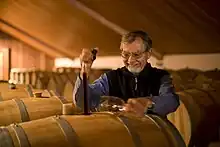
Pierre Tari Original grades: out of 20 points.
| Rank | Grade | Wine | Vintage | Origin |
|---|---|---|---|---|
| 1. | 17 | Ridge Vineyards Monte Bello | 1971 | |
| 2. | 15 | Heitz Wine Cellars Martha's Vineyard | 1970 | |
| 3. | 14 | Château Montrose | 1970 | |
| 3. | 14 | Château Haut-Brion | 1970 | |
| 3. | 14 | Freemark Abbey Winery | 1969 | |
| 6. | 13 | Clos Du Val Winery | 1972 | |
| 6. | 13 | Stag's Leap Wine Cellars | 1973 | |
| 8. | 12 | Château Leoville Las Cases | 1971 | |
| 8. | 12 | Mayacamas Vineyards | 1971 | |
| 10. | 11 | Château Mouton-Rothschild | 1970 |
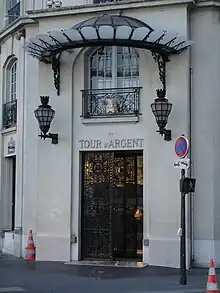
Christian Vanneque Original grades: out of 20 points.
| Rank | Grade | Wine | Vintage | Origin |
|---|---|---|---|---|
| 1. | 17 | Château Haut-Brion | 1970 | |
| 2. | 16.5 | Clos Du Val Winery | 1972 | |
| 2. | 16.5 | Stag's Leap Wine Cellars | 1973 | |
| 4. | 16 | Château Mouton-Rothschild | 1970 | |
| 5. | 15.5 | Ridge Vineyards Monte Bello | 1971 | |
| 6. | 11 | Château Montrose | 1970 | |
| 7. | 10 | Heitz Wine Cellars Martha's Vineyard | 1970 | |
| 8. | 8 | Château Leoville Las Cases | 1971 | |
| 9. | 6 | Freemark Abbey Winery | 1969 | |
| 10. | 3 | Mayacamas Vineyards | 1971 |

Aubert de Villaine Original grades: out of 20 points.
| Rank | Grade | Wine | Vintage | Origin |
|---|---|---|---|---|
| 1. | 16 | Château Montrose | 1970 | |
| 2. | 15 | Château Haut-Brion | 1970 | |
| 2. | 15 | Stag's Leap Wine Cellars | 1973 | |
| 4. | 14 | Château Mouton-Rothschild | 1970 | |
| 5. | 12 | Mayacamas Vineyards | 1971 | |
| 6. | 10 | Château Leoville Las Cases | 1971 | |
| 7. | 9 | Ridge Vineyards Monte Bello | 1971 | |
| 8. | 7 | Freemark Abbey Winery | 1969 | |
| 8. | 7 | Heitz Wine Cellars Martha's Vineyard | 1970 | |
| 10. | 5 | Clos Du Val Winery | 1972 |
Jean-Claude Vrinat Original grades: out of 20 points.
| Rank | Grade | Wine | Vintage | Origin |
|---|---|---|---|---|
| 1. | 15 | Château Montrose | 1970 | |
| 1. | 15 | Château Haut-Brion | 1970 | |
| 3. | 14 | Château Mouton-Rothschild | 1970 | |
| 3. | 14 | Stag's Leap Wine Cellars | 1973 | |
| 5. | 13 | Mayacamas Vineyards | 1971 | |
| 6. | 12 | Château Leoville Las Cases | 1971 | |
| 7. | 11 | Ridge Vineyards Monte Bello | 1971 | |
| 8. | 9 | Heitz Wine Cellars Martha's Vineyard | 1970 | |
| 9. | 7 | Freemark Abbey Winery | 1969 | |
| 9. | 7 | Clos Du Val Winery | 1972 |
Controversies
Statistical interpretation
Orley Ashenfelter and Richard E. Quandt analyzed the results of all 11 judges instead of only nine and proposed a slightly different ranking (see below). They also stated that only the scores of the first two wines in their ranking were statistically valid, and that the seven other wines could not be differentiated statistically.[6]
 USA Stag's Leap Wine Cellars '73
USA Stag's Leap Wine Cellars '73 France Montrose '70
France Montrose '70 France Mouton '70
France Mouton '70 France Haut Brion '70
France Haut Brion '70 USA Ridge Monte Bello '71
USA Ridge Monte Bello '71 USA Heitz Martha's '70
USA Heitz Martha's '70 France Leoville-las-cases '71
France Leoville-las-cases '71 USA Freemark Abbey '69
USA Freemark Abbey '69 USA Mayacamas '71
USA Mayacamas '71 USA Clos du Val '72
USA Clos du Val '72
Tasting replications
Some critics argued that French red wines would age better than the California reds, so this was tested.[7]
San Francisco Wine Tasting of 1978
The San Francisco Wine Tasting of 1978 was conducted 20 months after the Paris Wine Tasting of 1976. Steven Spurrier flew in from Paris to participate in the evaluations, which were held at the Vintners Club.[5][8]
On 11 January 1978, evaluators blind-tasted the same Chardonnays tasted earlier in Paris.
 USA – 1974 Chalone Winery
USA – 1974 Chalone Winery USA – 1973 Chateau Montelena
USA – 1973 Chateau Montelena USA – 1973 Spring Mountain Vineyard
USA – 1973 Spring Mountain Vineyard France – 1972 Puligny-Montrachet Les Pucelles Domaine Leflaive.
France – 1972 Puligny-Montrachet Les Pucelles Domaine Leflaive.
Ranking lower were Meursault Charmes Roulot 1973, Beaune Clos des Mouches Joseph Drouhin 1973, and Batard-Montrachet Ramonet-Prudhon 1973.
On 12 January 1978, evaluators blind-tasted the same Cabernet Sauvignons tasted earlier in Paris.
 USA – 1973 Stag's Leap Wine Cellars
USA – 1973 Stag's Leap Wine Cellars USA – 1970 Heitz Wine Cellars Martha's vineyard
USA – 1970 Heitz Wine Cellars Martha's vineyard USA – 1971 Ridge Vineyards Monte Bello
USA – 1971 Ridge Vineyards Monte Bello France – 1970 Château Mouton Rothschild.
France – 1970 Château Mouton Rothschild.
Ranking lower were Château Montrose 1970, Château Haut-Brion 1970, and Château Leoville Las Cases 1971.
French Culinary Institute Tasting of 1986
Two tastings were conducted by the French Culinary Institute (now called the International Culinary Center) on the tenth anniversary of the original Paris Wine Tasting. White wines were not evaluated in the belief that they were past their prime.[5]
Steven Spurrier, who organized the original 1976 wine competition, assisted in the anniversary tasting. Eight judges blind tasted nine of the ten wines evaluated. The evaluation resulted in the following ranking:
- Results
Rank Wine
 USA – Clos Du Val Winery 1972
USA – Clos Du Val Winery 1972 USA – Ridge Vineyards Monte Bello
USA – Ridge Vineyards Monte Bello France – Château Montrose
France – Château Montrose France – Château Leoville Las Cases 1971
France – Château Leoville Las Cases 1971 France – Château Mouton Rothschild 1970
France – Château Mouton Rothschild 1970 USA – Stag's Leap Wine Cellars 1973
USA – Stag's Leap Wine Cellars 1973 USA – Heitz Wine Cellars 1970
USA – Heitz Wine Cellars 1970 USA – Mayacamas Vineyards 1971
USA – Mayacamas Vineyards 1971 France – Château Haut-Brion
France – Château Haut-Brion
Wine Spectator Tasting of 1986
Four of the judges were experts from Wine Spectator and two were outsiders. All tasted the wines blind.
- Results
Rank Wine
 USA – Heitz Wine Cellars 1970
USA – Heitz Wine Cellars 1970 USA – Mayacamas Vineyards 1971
USA – Mayacamas Vineyards 1971 USA – Ridge Vineyards Monte Bello
USA – Ridge Vineyards Monte Bello USA – Stag's Leap Wine Cellars 1973
USA – Stag's Leap Wine Cellars 1973 USA – Clos Du Val Winery 1972
USA – Clos Du Val Winery 1972 France – Château Montrose 1970
France – Château Montrose 1970 France – Château Mouton Rothschild 1970
France – Château Mouton Rothschild 1970 France – Château Leoville Las Cases 1971
France – Château Leoville Las Cases 1971 USA – Freemark Abbey Winery 1969
USA – Freemark Abbey Winery 1969 France – Château Haut-Brion 1970
France – Château Haut-Brion 1970
30th anniversary
A 30th anniversary re-tasting on both sides of the Atlantic Ocean was organized by Steven Spurrier in 2006. As The Times reported "Despite the French tasters, many of whom had taken part in the original tasting, 'expecting the downfall' of the American vineyards, they had to admit that the harmony of the Californian cabernets had beaten them again. Judges on both continents gave top honors to a 1971 Ridge Monte Bello cabernet. Four Californian reds occupied the next placings before the highest-ranked Bordeaux, a 1970 Château Mouton-Rothschild, came in at sixth."[9][10]
The Tasting that Changed the Wine World: 'The Judgment of Paris' 30th Anniversary was conducted on 24 May 2006.[11]
The pearl anniversary was held simultaneously at the museum Copia in Napa, California, and in London at Berry Bros. & Rudd, Britain's oldest wine merchant.[10]
The panel of nine wine experts at Copia consisted of Dan Berger, Anthony Dias Blue, Stephen Brook, Wilfred Jaeger, Peter Marks MW, Paul Roberts MS, Andrea Immer Robinson MS, Jean-Michel Valette MW and Christian Vanneque, one of the original judges from the 1976 tasting.[11]
The panel of nine experts at Berry Bros. & Rudd consisted of Michel Bettane, Michael Broadbent MW, Michel Dovaz, Hugh Johnson, Matthew Jukes, Jane MacQuitty, Jasper Morris MW, Jancis Robinson OBE MW and Brian St. Pierre.[11]
The results showed that additional panels of experts again preferred the California wines over their French competitors.[10]
- Results
 USA – Ridge Vineyards Monte Bello 1971
USA – Ridge Vineyards Monte Bello 1971 USA – Stag's Leap Wine Cellars 1973
USA – Stag's Leap Wine Cellars 1973 USA – Mayacamas Vineyards 1971 (tie)
USA – Mayacamas Vineyards 1971 (tie) USA – Heitz Wine Cellars 'Martha's Vineyard' 1970 (tie)
USA – Heitz Wine Cellars 'Martha's Vineyard' 1970 (tie) USA – Clos Du Val Winery 1972
USA – Clos Du Val Winery 1972 France – Château Mouton-Rothschild 1970
France – Château Mouton-Rothschild 1970 France – Château Montrose 1970
France – Château Montrose 1970 France – Château Haut-Brion 1970
France – Château Haut-Brion 1970 France – Château Leoville Las Cases 1971
France – Château Leoville Las Cases 1971 USA – Freemark Abbey Winery 1969
USA – Freemark Abbey Winery 1969
Three of the Bordeaux wines in the competition were from the 1970 vintage, identified by the Conseil Interprofessionnel du Vin de Bordeaux (CIVB) as among the four best vintages in the past 45 years or more. The fourth Bordeaux was a 1971, described by the Conseil as "very good". Another official French authority, the Office national interprofessionnel des vins (Onivins), rates the 1971 vintage as "excellent".
The French wine producers had many years' experience making wine, whereas the California producers typically had only a few years' experience; the 1972 vintage was Clos Du Val's very first, yet it performed better than any of its French competitors.
Implications in the wine industry
Although Spurrier had invited many reporters to the original 1976 tasting, the only reporter to attend was George M. Taber from Time, who promptly revealed the results to the world.[12] The horrified and enraged leaders of the French wine industry then banned Spurrier from the nation's prestigious wine-tasting tour for a year, apparently as punishment for the damage his tasting had done to its former image of superiority.[3] The tasting was not covered by the French press, who almost ignored the story. After nearly three months, Le Figaro published an article titled "Did the war of the cru take place?" describing the results as "laughable" and said they "cannot be taken seriously."[13] Six months after the tasting, Le Monde wrote a similarly toned article.[13]
The New York Times reported that several earlier tastings had occurred in the U.S., with American chardonnays judged ahead of their French rivals. One such tasting occurred in New York just six months before the Paris tasting, but "champions of the French wines argued that the tasters were Americans with possible bias toward American wines. What is more, they said, there was always the possibility that the Burgundies had been mistreated during the long trip from the (French) wineries." The Paris Wine Tasting of 1976 had a revolutionary impact on expanding the production and prestige of wine in the New World.[3] It also "gave the French a valuable incentive to review traditions that were sometimes more accumulations of habit and expediency, and to reexamine convictions that were little more than myths taken on trust."[14]
In the media
- Bottle Shock, a feature film starring Alan Rickman and Chris Pine, dramatized the 1976 wine tasting and debuted at the 2008 Sundance Film Festival. A second film (Judgment of Paris, based on George Taber's book of the same name) was in production, and there has been controversy between the makers of the two films with allegations of defamation and misrepresentation.[15]
- Modern Marvels (S:13, E:54 – "How Wine is Made".[16][17]) Discussion of the event is summarized in this History channel show.
- Hollywood screenwriter Robert Mark Kamen is filming the movie Judgment of Paris based on George Taber's book.[18][19]
See also
References
- "The Paris Tasting". National Museum of American History, Smithsonian Institution. Retrieved 5 August 2008.
- Mobley, Esther (24 October 2018). "The hidden figures behind the Judgment of Paris". San Francisco Chronicle. Archived from the original on 14 February 2019.
- Peterson, Thane (8 May 2001). "The Day California Wines Came of Age". Business Week. Archived from the original (Much to France's chagrin, a blind taste test 25 years ago in Paris inadvertently launched California's fine wine industry) on 18 October 2007. Retrieved 19 July 2006.
- Taber 2005, pp. 306–308
- Taber 2005, p. 218,238,276
- Ashenfelter, Orley; Quandt, Richard E. (1976). "Analyzing a Wine Tasting Statistically". Liquid Asset.
- Murphy, Linda (25 May 2006). "California wines beat the French – again Taste-off proves California wines age best, too". San Francisco Chronicle. Retrieved 15 August 2008.
- "Vintners Club". Archived from the original on 10 February 2015.
- Hamilton, Alan; Sanderson, David (25 May 2006). "California reds win by a nose in tasting rematch". The Times. Archived from the original on 11 March 2007.
- Murphy, Linda (25 May 2006). "California wines beat the French – again / Even after 30 years of aging, state's Cabernets still tops" (Chronicle wine editor). San Francisco Chronicle. Archived from the original on 25 October 2012. Retrieved 27 April 2012.
- "Judgment of Paris: 1976 France v US winetasting duel to be recreated on 30th anniversary". Finfacts.com. Retrieved 27 April 2012.
- Taber, George M. (7 June 1976). "Judgment of Paris" (Modern Living). Time. Archived from the original on 8 November 2015. Retrieved 27 April 2012.
- Taber 2005, p. 218
- History in a Glass, p. 180.
- Willsher, Kate (1 August 2007). "Hollywood goes nose to nose over French wine's darkest moment". The Guardian.
- "Modern Marvels: How Wine Is Made - Full Episode (S13, E54)". The History Channel. Archived from the original on 21 December 2021 – via YouTube.
- "Modern Marvels: Wine (S12, E49)". History Channel. 29 November 2006.
- "Mike Grgich filmed for upcoming 'Judgment of Paris' movie". The Weekly Calistogan. Napa Valley Register. 30 September 2015. Archived from the original on 22 March 2018.
- Lechmere, Adam (18 November 2015). "Judgment Movie Finally Ready to Shoot". Wine-Searcher. Archived from the original on 26 May 2017. Retrieved 21 April 2021.
Further reading
- Hinkle, Richard Paul. The Paris tasting revisited. Wines & Vines, August 1996, 77(8), 32–34.
- Hulkower, Neal D. The Judgment of Paris According to Borda. Journal of Wine Research, 2009, 20(3), 171–182.
- McCoy, Elin (25 July 2005). The Emperor of Wine: The Rise of Robert M. Parker, Jr., and the Reign of American Taste. New York: Harper Collins. ISBN 9780060093693.
- Peterson, Thane. The Day California Wines Came of Age: Much to France's Chagrin: a Blind Taste Test 25 Years Ago in Paris inadvertently launched California's fine wine industry. Business Week, 8 May 2001.
- Prial, Frank J. (9 June 1976). "Wine talk: California labels outdo French in blind test". The New York Times.
- Prial, Frank J. (4 May 1976). "The day California shook the world blind tasting in Paris with U.S. winning highest scores". The New York Times.
- Rice, William. Those winning American wines. The Washington Post, 13 June 1976.
- Taber, George M. (13 September 2005), The Judgment of Paris: California vs France and the Historic 1976 Paris Tasting That Revolutionized Wine, Scribner, ISBN 978-0-7432-4751-1
- Reichl, Ruth, ed. (7 March 2006). History in a Glass: Sixty Years of Wine Writing from Gourmet (The American Revolution: The Judgment of Paris – Gerald Asher). Modern Library. p. 176. ISBN 9780679643128.
- Steinmetz, Katy (24 May 2016). "How America Kicked France in the Pants And Changed the World of Wine Forever". Time. Archived from the original on 18 April 2017.
- Winiarski, Warren. "Zut alors! The French like California wine". Wines & Vines. No. April 1991, 72(4). p. 28.
- 30th anniversary
- Rose, Anthony (25 May 2006). "Thirty years after a shock defeat, French wines lose again to Californians in the great taste test". Independent.
- "Judgment of Paris: 1976 France v US winetasting duel to be recreated on 30th anniversary". Finfacts.com. 24 May 2006.
- Murphy, Linda (25 May 2006). "California wines beat the French – again: Even after 30 years of aging, state's Cabernets still tops". San Francisco Chronicle.
- Yadegaran, Jessica. Do the French grow old gracefully? Contra Costa Times, 17 May 2006.
- Yadegaran, Jessica. Napa v. Bordeaux, Round Two: Vintners re-enact famous '76 tasting. Contra Costa Times, 25 May 2006.
External links
- TIME Magazine: Modern Living: Judgement of Paris, 7 June 1976 by George M. Taber
- Bottle Shock at IMDb
- 40th anniversary of the Judgment of Paris on YouTube
- 30th anniversary tasting